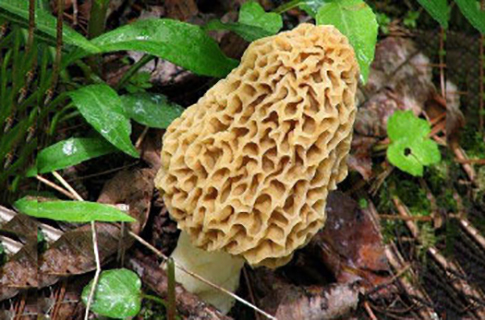BY
Cold, windy spring days have left Iowa’s morel mushroom harvest delayed.
By this date, mushroom hunters are typically thick in forested areas collecting the delicacies that only appear for a short time every spring. Matt Moles is park manager for the Iowa DNR’s Waubonsie State Park in Fremont County.
He says his office has been receiving numerous calls from people asking if morels have been popping up yet in the park. “Don’t get disheartened yet with the weather patterns,” Moles says. “I’ve picked mushrooms anywhere between the very tail-end of March through two or three weeks into May in this part of the state. What we need right now is a little bit more ground moisture and probably a few more warmer days.”
While a few hunters have started reporting success in parts of southern Iowa and southeast Nebraska, Moles says a good rain followed by some warm days could lead to a jump-start in the season.
“Usually what I notice in a year like the one we’re having now in a Spring that shapes like the climate we’re having now, is that the mushroom growth is really kind of fast and furious,” Moles says. “They pop-up, they produce their spores and then they get picked or they go away. I would not look for a prolonged season this year. Once you start getting reports of people picking them, you probably should get out there fast and do your thing.”
Morel mushrooms need soil temperatures between 50 and 54 degrees to thrive. Moles says there are plenty of good hunting spots in southwest Iowa. “There’s a lot of pseudo-science with mushroom hunting, which kind of makes it fun,” Moles says. “It really is a good idea to target dead or dying elm trees, ash trees, or cottonwood trees. We’re really fortunate here in the southwest part of the state that we have a lot of public land to choose from. I think Fremont County might have — per size of the counties — more public land than most other counties do in the state. There are a lot of great wildlife management areas and park areas for us to pick from.”
Other tips from the Iowa DNR include searching the base of slopes and areas with the mossy ground or creek beds where moisture is present.
(By Ryan Matheny, KMA, Shenandoah)




